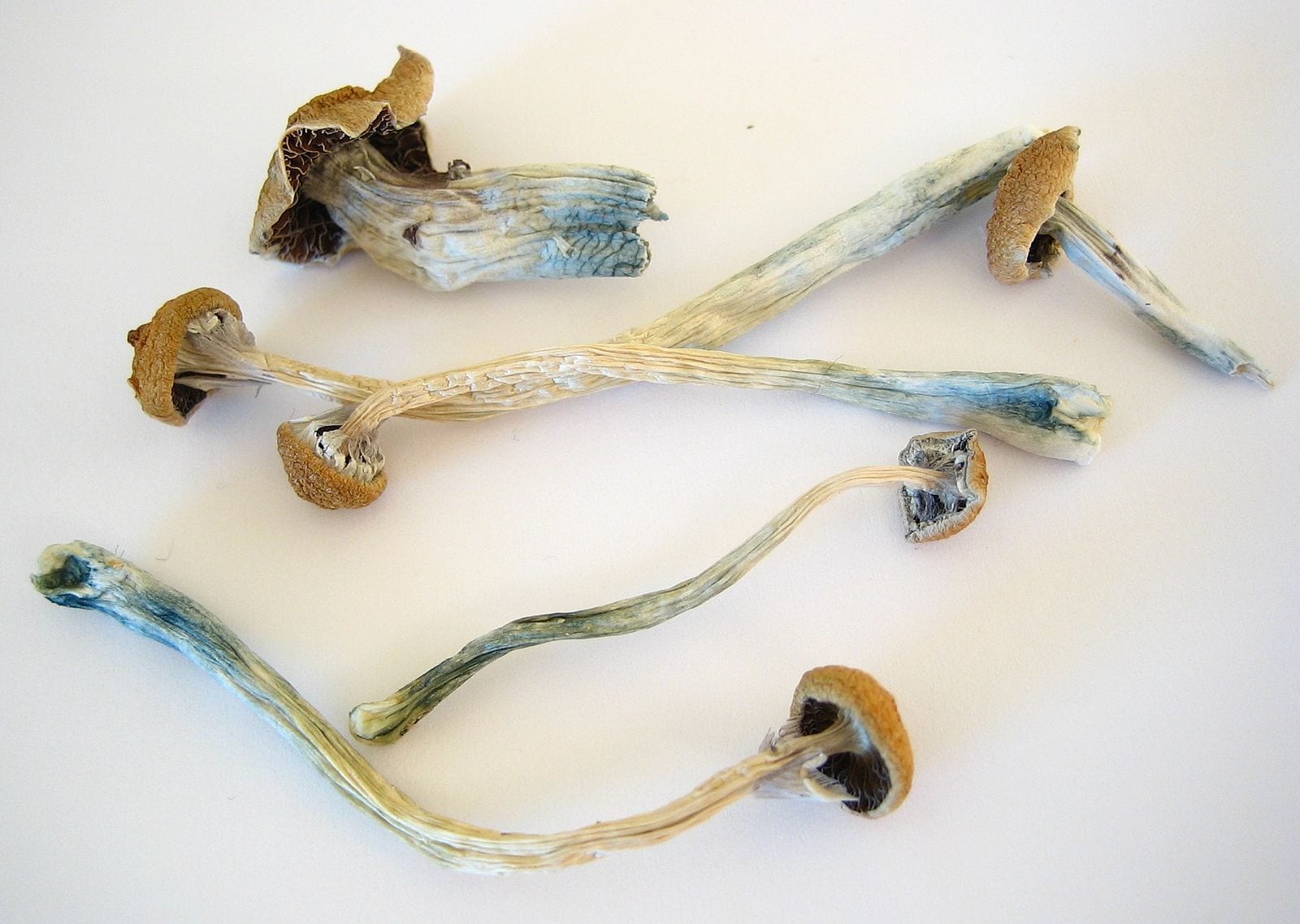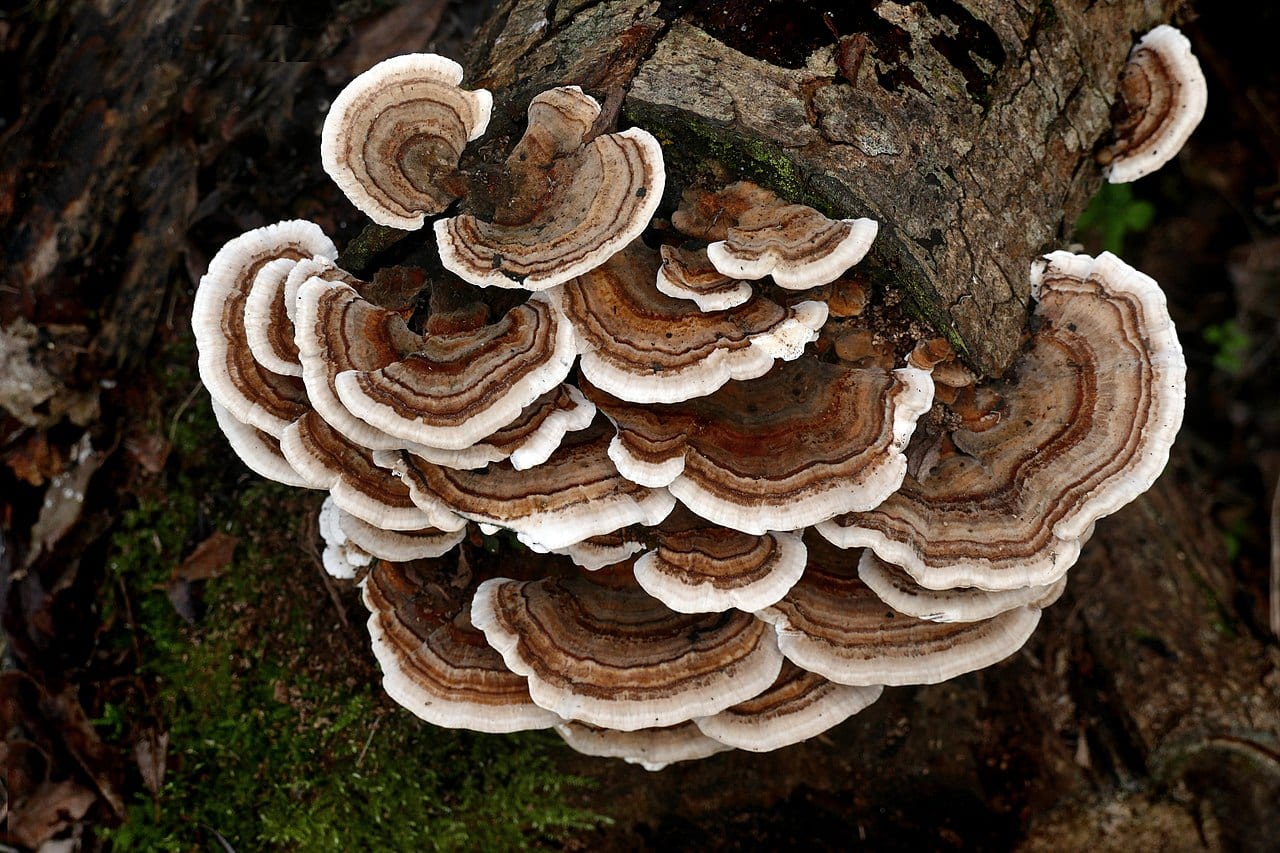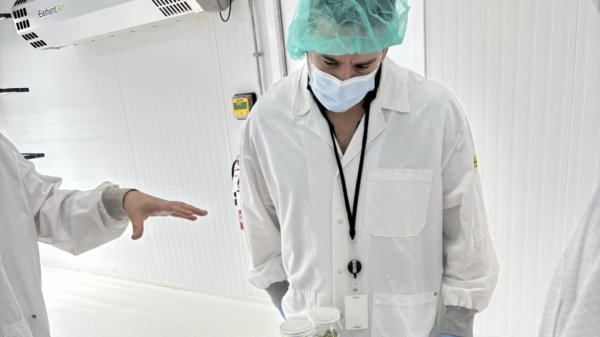When it comes to Canada’s recreational cannabis industry, hindsight is 2018.
Two years later, many of its first-movers are looking backwards to move forward.
Some of those early entrepreneurs are now executives at Havn Life Sciences Inc. (CSE: HAVN), one of the first publicly traded psychedelics companies — a business that wants to take hard lessons learned in the novel weed economy and turn them into gold.
In other words: a profitable model that can capitalize on a regulated market of mind-altering substances when it comes.
Such a market seems likely, at some point. The federal government has recently approved individual medical uses of psilocybin, and many see a legal path via self-determinant medication already paved by cannabis.
Read more: Canada grants terminal patients access to psilocybin therapy
Whenever Canada gets there, Havn is forging ahead by building a supply-chain of safe, quality controlled product that can service national and international markets.
Future in mind. Shareholder value in sight
But merely building out capacity would be making the same mistake twice.
With its retail side of the business, Havn plans to drive shareholder value in the near-term with a line of top-shelf health products, thereby sidestepping the grow-today-probably-profit-tomorrow pitfall felt by so many in the weed biz.
“We all came out of the cannabis industry,” says chief psychedelic officer Ivan Casselman. “And to be honest a lot of us didn’t do well in the cannabis industry.”

Canada’s prevailing corporate weed strategy when legalization hit was to build out as much capacity as possible. Some ventures, like B.C.’s Pure Sunfarms, sidestepped the glut by starting smaller and expanding over time. Photo via Pure Sunfarms
Because of this, his team recognizes the mistakes weed firms made when they first started out.
“So instead of just working through regulations, and licensing, and then waiting around to be allowed to do anything, we baked in Havn Retail, which will be focused on natural healthcare products that we are able to sell to the market right away as a revenue stream,” he says.
Are they going to be the biggest, baddest natural healthcare company in the world? No, Casselman says.
What they are going to do is get their branding and messaging out there, starting the process of educating people on the potential of natural medicines.
“Eventually, when Canada comes to a decision about how patients are going to be able to access psilocybin, Havn Labs will feed the product into Havn Retail,” Casselman explains, acknowledging the route to consumers might be different depending on how regulation takes shape.

Psilocybe cubensis mushrooms have gained increasing attention in recent years for their lasting impact and less harmful side-effects in the treatment of mental health conditions like depression and PTSD. Image public domian
As a plant scientist and ethnobotanist, Casselman’s efforts are focused on the lab, where the processes he structures can one day translate to the ongoing development of psychedelic treatments. An exemption from Section 56 of the Controlled Drugs and Substances Act granted to Havn this August allows him to possess psilocybin and do related research.
Read more: Numinus licensed by Health Canada to extract and research psilocybin
Navigating Havn’s corporate roadmap outside of that are a number of well-knowns including former Aphria CEO Vic Neufeld, former Squamish city councillor and entrepreneur Susan Chapelle, former Aphria chief scientific officer Gary Leong and consumer packaged goods veteran Tim Moore.
Why is a 62-year-old packaged goods guy in psychedelics?
With 30 years of executive experience at businesses like The Clorox Company and BRITA Group, Moore has been charged with overseeing Havn’s retail division.
Moore was also the CEO then general manager of Green Growth Brands Ltd., a previously booming multi-state cannabis operator that started a sales and solicitation process this June after a sharp decline into insolvency.
While you can’t be perfect, you don’t repeat the same mistakes either, he says after pouring an afternoon glass of Jameson.
Moore doesn’t mind sharing his imperfections, some of which are well-documented on Canada’s corporate reporting system.

This year, many weed companies have pivoted their corporate strategy to an emphasis on consumer packaged goods. Image by lyzadanger via Wikimedia Commons
“When I stepped down as CEO [of Green Growth Brands] in January 2019, my stock was worth just under $3 million, but I wasn’t able to sell any of it because we were under a blackout. When I eventually sold it all, I sold it for $4,100,” he says. “So you don’t need to tell me about scar tissue.”
So why is a 62-year-old packaged goods guy in the psychedelics space? Moore asks rhetorically.
It’s more than just a business commitment. It’s personal, he says.
Of his five sons — which are all adults now — two of them had anxiety disorders and one got hit by a drunk driver, leaving him with a disability that eventually led to opioid addiction.
“It was cannabis that saved his life and helped him to deal with his depression, his anxiety, his suicidal thoughts, his PTSD, his anger management, his chronic pain,” Moore says. “So that got me into the cannabis space a few years ago.”
Read more: UC Berkeley’s new psychedelic research centre wants to change your mind
He sees the promise psychedelics offer for mental health, and says he’s excited to be part of an industry that can help people avoid the grief he had to swim through for the last three decades.
This is where Moore’s experience with traditional CPG businesses comes in, to complement what he believes are world class science and operations teams. He points to Havn’s advisors, which include Allan Oberman, former CEO of mega-company Teva Pharmaceuticals.
In September, Havn said it submitted a range of health products for approval from Health Canada, “including a mushroom mix that addresses cognitive function and regulation, human performance and immunity.”
Havn’s seasoned team knows how to run businesses, how to build brands and has been accountable for balance sheets and cash flow, Moore says. So how do you complement your scientists who need years to take psilocybin to revenue with an accountable model for shareholders? That’s where the retail plan comes in.
“We are taking other psychoactives that are not restricted compounds: [fungi] like reishi, cordyceps, lion’s mane and turkey tail,” he explains. “They fall under the same rules as melatonin, chondroitin and glucosamine. As far as Health Canada is concerned, they’re novel compounds or nutritional supplements or natural health products — whichever description you want to use.”

Turkey tail mushrooms are rich in antioxidants. Some research suggests they have immune-boosting properties and can help people fight certain kinds of cancer. Image public domain
Havn will have formulas ready to ship early 2021, Moore anticipates. The products will be designed to improve people’s mental health and support human performance. They’re destined for all the places you’d expect to find them: health food stores, alternative therapy stores, drugstores and grocery stores.
‘Very, very similar to cannabis’
One of the first things that comes to mind when contemplating legal psilocybin is what that market actually looks like.
While many express doubts the retail potential for magic mushrooms is anywhere close to cannabis, it’s likely Canada will regulate them similarly.
The historic R. v. Parker ruling in 2000 established the constitutional right for a person to grow and possess weed for medical purposes. In the Ontario Court of Appeal, Terry Parker explained that after conventional therapy failed to treat his debilitating seizures, he found cannabis to be effective.
“We have a constitutional right in Canada to choose our medicine,” Casselman says. “So if a medicine is showing to be effective, then there are mechanisms we can use to access that medicine.”
Read more: First official call to decriminalize psychedelics in Canada to be heard later this year
Though approved for medical production and use, cannabis is not treated like a pharmaceutical nor a natural healthcare product. Its regulatory status floats somewhere in between. Casselman thinks it’s a reasonable assumption that psilocybin will also be in that in-between state with its own set of regulations, including how it gets from a producer to a patient.
“What I suspect is that in the near future health care practitioners will be able to license people to use psilocybin,” he says, which could be used in guided therapy or counselling.
It might be a smaller dose, and a person might do it on their own. But when it goes from the company to a patient, it’s the patient’s responsibility to choose the manner where they see the most benefit.
“Very, very similar to cannabis.”
Street art photo by Boris Laporte via Wikimedia Commons
nick@mugglehead.com
@nick_laba













